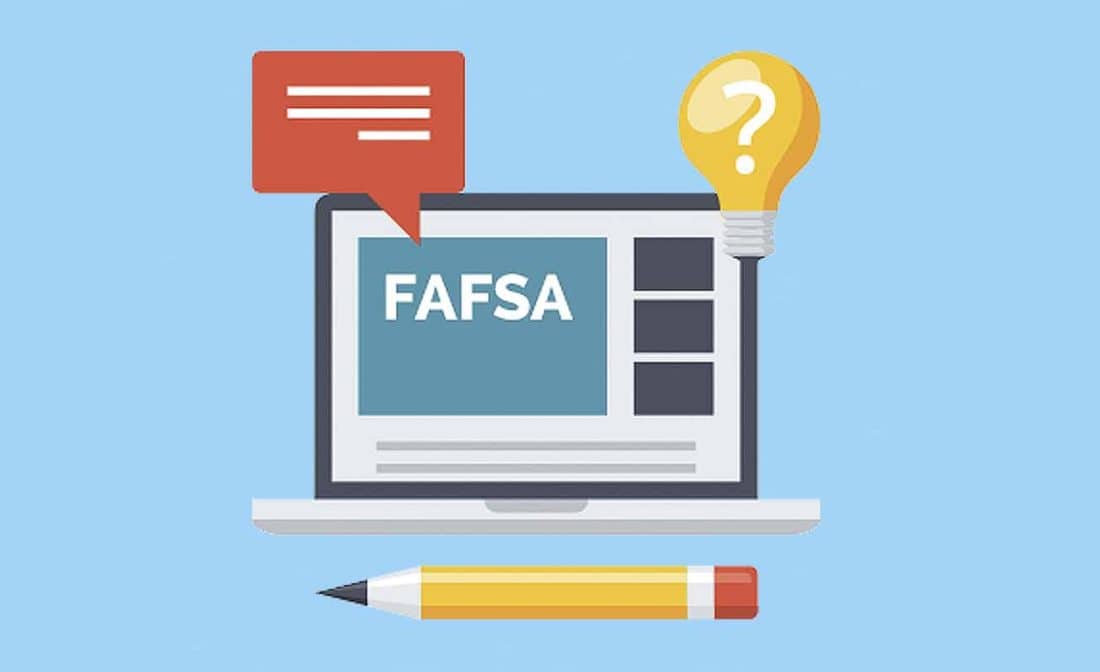How To Negotiate Your Financial Aid Package
As your college acceptances start rolling in, you’ll need to start making some decisions. When comparing colleges, an important decision factor is how much financial aid you’ll get. If your dream school offered a not so dreamy aid package, don’t despair. You can ask for more. A common misconception is that your financial aid package is set in stone. Well, it’s not, and the least you can do is negotiate. Especially if there are new circumstances in your life that should be considered.
Negotiations vary in success, but asking is generally worth the effort. The worst that can happen is that your appeal is rejected or they offer you less than what you asked for. This is disappointing to be sure, but don’t panic! There are other steps you can take to pay for college before you have to take out hefty personal loans. The negotiation process might seem intimidating, but we’re here to break it down, so you can prepare your own appeal. First, it’s important to understand all the factors that go into your financial aid award package, and what kind of appeal you need to make. Let’s dive in!
How is your Financial Aid package determined?
Your school’s financial aid office determines your financial aid packaged based on the information provided in your Free Application for Federal Student Aid (FAFSA). Simply put, your financial aid eligibility is determined by a simple equation: cost of attendance (COA) – expected family contribution (EFC) = amount of need-based aid.
- Cost of Attendance: Your COA is the amount it will cost you to go to school. Your COA is the sum of tuition and fees; the cost of room and board; the cost of books, supplies, etc.
- Expected Family Contribution: This is determined by your family’s taxed and untaxed income, assets, and benefits (such as unemployment or Social Security) all could be considered in the formula. Your family size and the number of family members who will attend college or career school during the year are also considered.
So let’s put some national averages in this equation:
$25,362 (COA) – $10,000 (EFC) = $15,362 (maximum amount of need-based aid)
Of course, these are just national averages. Your specific calculation of need-based aid will vary based on your institution and what your family can contribute.
What kind of appeal should I make?
Need-based appeal: Need-based financial aid is based on how much money you actually need to attend college. However, the above equation doesn’t always measure up! Especially in turbulent times, such as the COVID-19 pandemic. If anyone in your family has lost their job, or there were other unforeseen financial burdens since you filled out the FAFSA, you should file a need-based appeal.
Merit-based appeal: A merit-based appeal is a little different. The most important difference is that your FAFSA has no bearing on any merit aid. Merit aid is calculated entirely by your institution with information such as GPA, AP scores, and SAT/ACT scores, which are typically included in your application. If you’ve improved any of these scores since you applied, it might be worth filing a merit-based appeal.
How do I appeal?
As daunting as it may seem to approach your institution for more money, it can be worth the effort. Here are 7 tips to develop your financial aid appeal:
-
Be specific (and reasonable):
Unfortunately, it is unrealistic to expect a school to foot the entire bill of your education. But that doesn’t mean that you probably deserve a little more financial aid. Some schools have a larger budget, but there is always a cap on what they can provide. If you make a manageable request and outline what you need to attend, the odds of your appeal being approved increase. It is important to know exactly how much more you need. Sit down with your parents to calculate how much more aid you can reasonably ask for. An easy way to determine this is to calculate the difference between your parents expected financial contribution (EFC) and the amount provided in your aid package. Include that number in your written appeal.
-
Build the financial case:
If you’re making a need-based appeal, and you’ve made your calculations, you’ll need to gather the necessary documents to back that number up. A school will seldom give you more money simply because you asked for it. You need to prove that what they’ve offered isn’t enough. Gather documents, such as your parents’ pay stubs, receipts, and other forms of supporting financial documents that demonstrate your family’s need.
-
Build the merit- based case:
If you’re making a merit-based aid appeal, you can use documentation of improved grades or higher test scores to prove you deserve more aid. Adding strong grades and a revised personal statement can help you reach your goal.
-
Follow the rules:
Although the pandemic has disrupted the normal order of things, there are still procedures in place for things like financial aid appeals. Communicate with your school’s financial aid office so you are fully aware of the necessary steps to file your appeal. Following protocol with punctuality and attention to detail could make all the difference in getting your appeal approved.
-
Leverage other offers:
Schools know that you have other options. These can come in handy when you are negotiating for more aid. If you have award letters from other schools, add them along with your current offer and any other supporting documentation to see if the current school may be willing to match. This generally applies to need-based aid. Some schools might not be willing to provide additional merit aid if you do not meet their requirements, regardless of other offers.
-
Reiterate that the school of choice is your first choice.
This is especially effective when you combine your other offers. If this school is your first choice, and the difference If the only thing holding you back is money, it may be persuasive in the attempt to generate more. Colleges want bright and eager students to enroll, so they will generally do everything they can to help you.
-
Be polite and patient:
When it comes to renegotiating your aid, it literally pays to be polite. Remember that the person you are talking to on the phone or via email cannot wave a magic wand to get you more money. Yet, they will do as much as they can to help you, so treat them with respect. After all, you catch more flies with honey!
Once you submit your written negotiation request, it’s time to wait. If you have not heard anything in a week or two, follow up with a phone call. You can confirm your request was received, ask for an update or see if the school needs anything else. If you still don’t have enough financial aid after the negotiation process, you can look into other ways to make up the difference.
What do I do if they say no?
Although there is light at the end of the pandemic tunnel, colleges are still facing some budget restraints. If your appeal is rejected, or they offer you less than you wanted, don’t consider your dreams crushed. It’s time to get creative. The harsh reality is that college is expensive. We get it. If after your appeal you still need some extra cash for college, we got you! At Colleges of Distinction, we are always helping students find unique ways to fund their education. We’re constantly updating our Scholarship page to bring you new ways to pay for college. From our Mega List of scholarships to our Special Attribute list, we have opportunities for every student.




